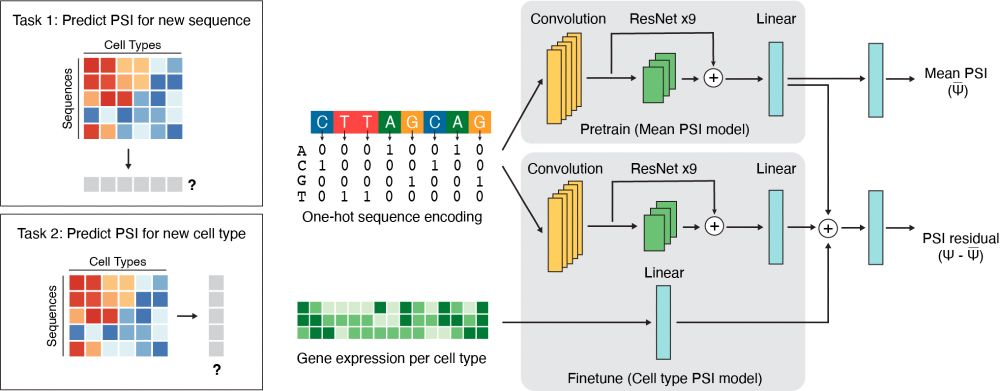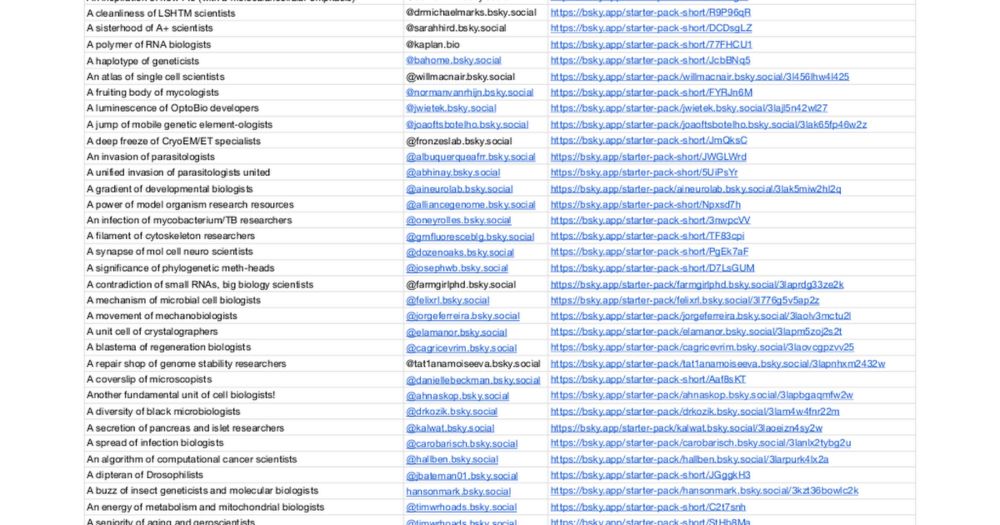
We drew inspiration from ChromBPNet (@anshulkundaje.bsky.social) to encode cell type-specific information directly from gene expression data. (6/10)

We drew inspiration from ChromBPNet (@anshulkundaje.bsky.social) to encode cell type-specific information directly from gene expression data. (6/10)

Complete with collective nouns
I’ve been tracking these but now can’t keep up
Hope it’s helpful
2/2
docs.google.com/spreadsheets...

Complete with collective nouns
I’ve been tracking these but now can’t keep up
Hope it’s helpful
2/2
docs.google.com/spreadsheets...

